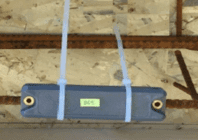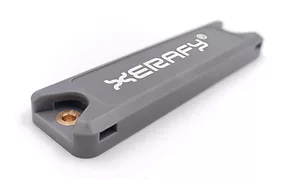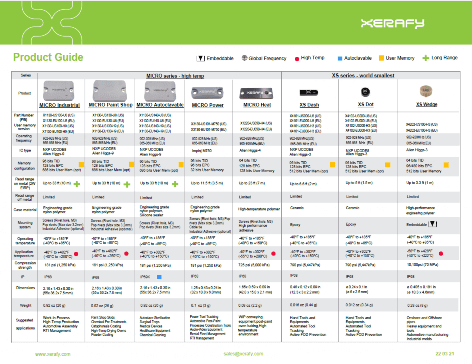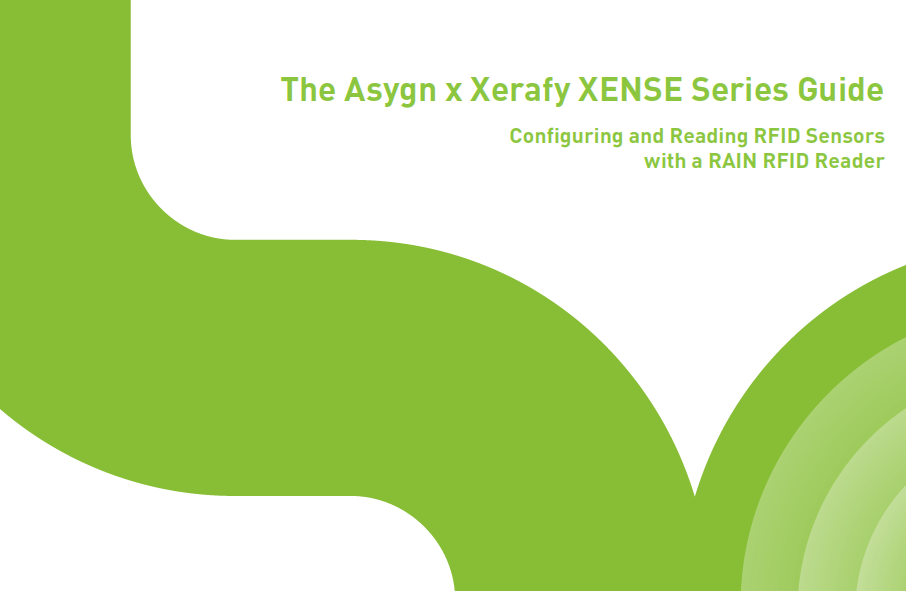XENSE series
RFID sensors tags for battery-free monitoring and tracking in Construction, Infrastructure, Manufacturing, Logistics

RFID sensors are a great way to monitor and track activities in construction, infrastructure, manufacturing, logistics, and other fields. These sensors utilize RFID technology to enable battery-free tracking of materials, personnel, and other resources without the need for hard wiring or power sources.
The innovative XENSE sensing platform is built on passive RAIN RFID and Xerafy’s rugged tagging solutions to support the cost-effective deployment of asset monitoring capabilities in IoT systems.

“Xerafy is a highly regarded specialist in the field of RFID for mission-critical applications, and they came out on top of our evaluation.”
RFID Sensing That Outperform
The XENSE series of battery-free sensors are engineered to offer monitoring solutions optimized to perform in complex systems
Battery-Free
Operate autonomously without an external power source
IOT Devices
Based on RAIN RFID global wireless standard: UHF Gen 2 EPC passive RFID
Embeddable
IP68 waterproof, Weatherproof, Rugged casing and mounting options
Sensing
Full range of monitoring parameter options and fast read rate
Memory
512 bits of non-volatile memory for configuration and data storage
Wireless
Works embedded in a variety of materials

XENSE Temp
Battery-Free Concrete Curing
The Xerafy XENSE Temp is a battery-free RAIN RFID sensor designed for concrete curing monitoring.
The industry-grade case and attachment system is embeddable in concrete and offers a fast read-rate sensing platform with customizable features.

XENSE Strain
Infrastructure Monitoring
The Xerafy XENSE Strain is a battery-free RAIN RFID sensor designed to monitoring strain in concrete structures.
The industry-grade case and attachment system is embeddable in concrete and offers a fast read-rate sensing platform with customizable features.

XENSE Humidity
Battery-Free Humidity Sensing
The Xerafy XENSE Humidity is a battery-free RAIN RFID sensor for moisture monitoring.
The industry-grade case and attachment system offers a fast read-rate sensing platform with customizable features.
How to Print, Mark, Encode, and
Custom Design?
All the sensor tags in the XENSE series can be personalized
to support the deployment of your RFID systems
Silk-screen printing options include logo, serial numbers
Marking
Laser engraving for
durable readability
Encode
User memory versions for
encoding and programming
Engineering
Sensing features, form factors, mounting systems...
Case Studies
Battery-less RFID sensing tags offer a cost-effective solution for the monitoring of critical infrastructure and assets.
- Logistics
- Complex Supply Chains
- Construction
- Infrastructure
- Manufacturing
No results found.
FAQs RFID Sensing with XENSE series
What are RFID Sensors?
RFID sensors are constructed with specialized sensing chips that monitor environmental conditions and wirelessly send the data when interrogated by an RFID reader device.
The passive sensors take their energy from the radio waves generated by the reader, enabling entirely wireless and battery-free operations.
Rugged sensing tags, such as the Xerafy XENSE series, can be embedded in concrete or plaster, allowing for automatic identification, data collection, and data transfer over long distances and through materials.
What are the advantages of wireless RFID Sensors?
Passive RFID sensors like the Xerafy XENSE series enable immediate monitoring and control purposes, at an entry-level cost thanks to the absence of a battery.
RFID sensors provide real-time data wirelessly and remotely, eliminating the need for later download. The data captured by the sensor tag is typically transmitted to a reader, which can then be transferred to a cloud-based system or gateway for further analysis and monitoring.
Sensing loggers on the other hand will require a more complex setup involving a battery, wired sensors, etc… in order to trace a range of data over a specific period of time.
What can be measured with an RFID sensor tag?
Sensing features cover a full range of monitoring parameter options:
TEMPERATURE
-40°C to +125°C (with external temperature sensor above for accurate measurement)
HUMIDITY
Percentage of humidity in the air
STRAIN
AMBIENT LIGHT
ELECTRICAL CONTINUITY
ACCELEROMETER
Detect and monitor motion, shocks
PRESSURE
MAGNETIC FIELD
Some parameters are monitored directly by the IC chip, while others rely on resistive or capacitive sensors.
Xerafy XENSE is a fully customizable sensing platform that allows the sensor to be designed to specifications by leveraging the company’s extensive library of trusted industry-grade form factors, mounting options, materials, and sensing features.
How to read RFID sensor data?
Xerafy XENSE sensors can be read using any reader complying with RAIN RFID, the global Radio-frequency identification (RFID) standard. Sensors are interrogated using standard EPC (Electronic Product Code) commands, to retrieve the sensor data required for the monitoring software/system.
Hundreds of sensors can be monitored simultaneously, using fixed, handheld, and /or drone RFID readers. The type and power level of the RFID reader will influence the distance at which sensor tags can be read. However, the accuracy of the sensor is not impacted by this RF energy, and guidance is available for optimization.
Many reader manufacturers already have demo software available, which allows to quickly compute temperature and humidity, as well as SDKs to develop a custom software.
How are RFID Temperature Sensors used in Construction?
RFID temperature sensors are an invaluable tool in the construction industry, especially for real-time monitoring and controls during concrete curing processes.
The Xerafy XENSE Temp sensor tag has been specially engineered to withstand the harshest of environments, including heat, moisture, pressure, and even metal. As a fully wireless sensor, it is embeddable into a concrete structure with no battery nor maintenance involved.
How is RFID sensing used in Infrastructure Monitoring?
Strain sensors help detect changes in civil engineering structures, ground, and buildings. They combine both environmental and structural measurements necessary for infrastructure monitoring.
What is the role of RFID Sensors in preventive maintenance?
RFID sensing is used to anticipate wear or breakdowns. They enable maintenance technicians to focus on key issues and provide data points to build predictive models.
RFID sensors for preventive maintenance are used to monitor temperatures, vibrations, strain, voltage, contact… They are engineered to fit in harsh environments (heat, moisture, metal…) and rotating machines.
How is RFID sensing used in Logistics?
RFID sensing help minimize assembly line downtime, track supplies fill ratio, and generate alerts for replenishment.
Passive weight scale use RFID strain sensors to monitor supplies level. They are particularly well adapted to small objects (nuts, bolts, screws, nails) and liquids (paint, oil,…).

